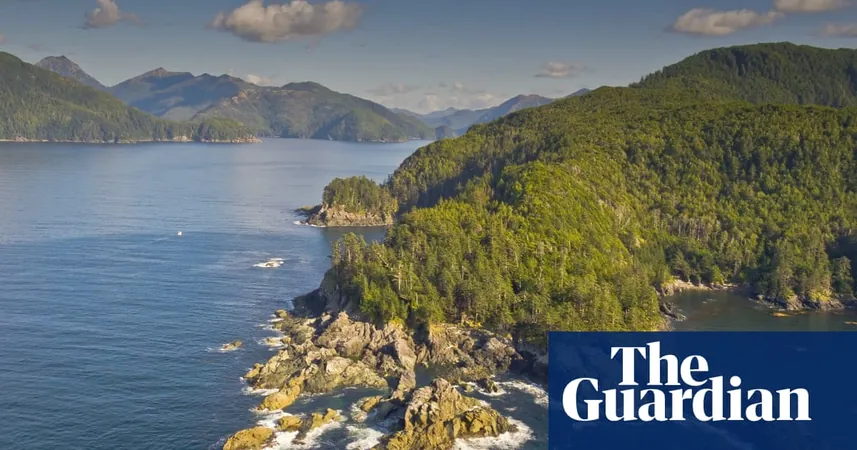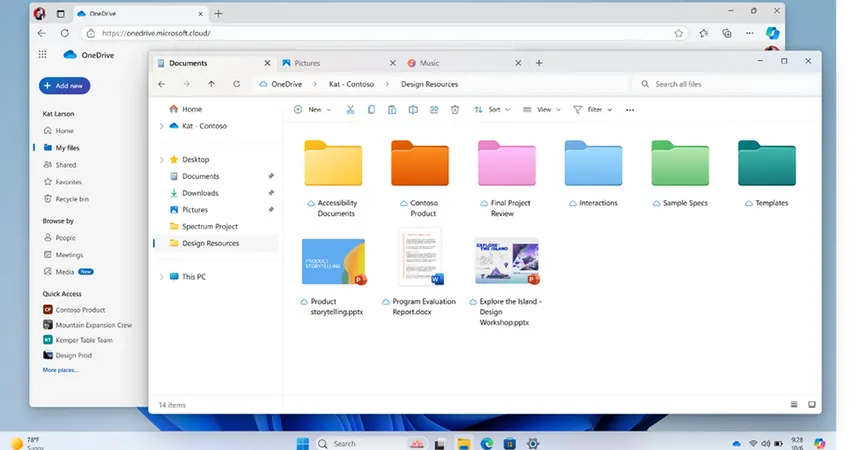
British Columbia's Revolutionary Move Toward Decolonization: A Game Changer for Indigenous Rights!
2024-10-09
Author: Amelia
Introduction
In a groundbreaking initiative, British Columbia (BC) is rewriting its laws to share power with Indigenous nations over a territory larger than the combined area of France and Germany. This unprecedented experiment signals a historic shift in governance and Indigenous rights in Canada’s westernmost province.
The Beginning of a New Era
The journey toward this radical transformation began in 2019 when BC became the first place in the world to legally adopt the United Nations Declaration on the Rights of Indigenous Peoples (UNDRIP). This landmark law facilitates shared decision-making between the provincial government and First Nations regarding land management and resource development, including logging, mining, and construction—potentially reshaping the region's economic landscape.
A Historic Moment
Terry Teegee, Chief of the BC Assembly of First Nations and chair of BC’s UNDRIP implementation committee, aptly describes the process as 'building a plane while flying it.' He emphasizes the unique nature of this initiative, stating, 'It’s a historical moment that’s distinct anywhere in the world.'
Global Recognition and Context
Experts recognize the significance of BC's efforts. Sheryl Lightfoot, an Anishinaabe scholar and member of the UN expert mechanism on Indigenous peoples, labels it 'path-breaking.' She adds, 'What BC demonstrates is an intentional approach to implementing the Declaration, a precedent we've been advocating for globally.'
Challenges and Comparisons
Despite nearly 150 countries voting in favor of UNDRIP at its adoption by the UN General Assembly in 2007, only Canada has made strides similar to BC in translating this declaration into law. However, the effects of federal legislation have been muted due to provincial jurisdiction over land-use decisions—an authority that BC is now beginning to share with Indigenous nations.
Learning From Global Efforts
Globally, while countries such as Ecuador, Bolivia, Norway, and Kenya have sought to integrate UNDRIP into constitutional reforms, they often struggle with gaps in implementation. Lightfoot cites New Zealand as an example, where despite being viewed as a leader in Indigenous rights, the lack of legislative action has hindered progress.
Indigenous Stewardship of the Land
In BC, the mountainous terrain and expansive forests are home to around 300,000 Indigenous people representing 34 different languages—all of whom are stewards of this land since the last ice age. However, nearly 97% of the province’s land was seized without treaty agreements, leading to extensive ecological degradation, including deforestation and significant declines in wildlife populations.
The Fight Against Colonialism
The past three decades of legal battles have challenged the colonial framework that has denied Indigenous rights and title. Activists and First Nations have mounted significant protests and civil disobedience campaigns against exploitative practices in the province. Yet, community sentiments indicate that improvements are being made—sometimes at an alarming pace.
Acknowledging the Challenges Ahead
Adam Olson, a member of BC’s opposition Green Party and the Tsartlip Nation, acknowledges the difficulties of dismantling a century-and-a-half of colonial policy, stating, 'They’re unpacking 175 years of public policy grounded in the denial of First Nations rights.'
Recent Legislative Milestones
Recent milestones showcase this legislative journey. In April, the Haida Nation claimed aboriginal title over all of Haida Gwaii, an extraordinary archipelago. By June, the province co-managed an impressive 2,000 sq km Klinse-Za conservation area with two First Nations, and in July, the launch of the Great Bear Sea initiative created marine protected areas managing 100,000 sq km—an exciting collaboration among 17 coastal nations.
Political Uncertainty
Despite these advancements, the journey continues amidst public backlash and political uncertainty. With a provincial election looming on October 19, the ruling New Democratic Party is faced with a formidable Conservative opposition, which has vowed to challenge the gains made under the recently enacted act.
Looking Ahead
The results of this election will be watched closely, not just in BC but globally. The future of Indigenous rights and environmental protections in the face of ecological crises hangs in the balance. As British Columbia forges a path for reconciliation, it poses pivotal questions: Can its groundbreaking legislation endure political change? Will Indigenous rights continue to be prioritized or further marginalized?
Conclusion
As ecosystems worldwide face unprecedented challenges, British Columbia’s struggle could offer a valuable roadmap for Indigenous communities globally. The outcome of this political saga will not only impact the local governance but may set a precedent for Indigenous rights movements worldwide, representing a crucial turning point in the fight against colonialism and for ecological justice.









 Brasil (PT)
Brasil (PT)
 Canada (EN)
Canada (EN)
 Chile (ES)
Chile (ES)
 España (ES)
España (ES)
 France (FR)
France (FR)
 Hong Kong (EN)
Hong Kong (EN)
 Italia (IT)
Italia (IT)
 日本 (JA)
日本 (JA)
 Magyarország (HU)
Magyarország (HU)
 Norge (NO)
Norge (NO)
 Polska (PL)
Polska (PL)
 Schweiz (DE)
Schweiz (DE)
 Singapore (EN)
Singapore (EN)
 Sverige (SV)
Sverige (SV)
 Suomi (FI)
Suomi (FI)
 Türkiye (TR)
Türkiye (TR)